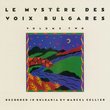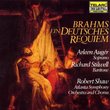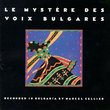| All Artists: Bartok, Dorati, Dso Title: Miraculous Mandarin / Strings & Percussion Members Wishing: 0 Total Copies: 0 Label: Polygram Records Release Date: 10/25/1990 Genre: Classical Styles: Ballets & Dances, Ballets, Historical Periods, Modern, 20th, & 21st Century Number of Discs: 1 SwapaCD Credits: 1 UPC: 028941189424 |
Search - Bartok, Dorati, Dso :: Miraculous Mandarin / Strings & Percussion
 | Bartok, Dorati, Dso Miraculous Mandarin / Strings & Percussion Genre: Classical
|
CD DetailsSimilarly Requested CDs
|
CD ReviewsA One-of-a-Kind "Mandarin" from Dorati M. C. Passarella | Lawrenceville, GA | 05/05/2006 (5 out of 5 stars) "This disc contains a very good "Music for Strings, Percussion, and Celesta," though better ones can be had. Essentially, it's let down somewhat by a too-genteel rendition of the "Bulgarian" four movement, which should zip along in Allegro barbaro fashion--at least the best performances of the work, such as Reiner's classic one, do. There's also a gratuitous ritard right before the final cadence, a small point, perhaps, but it really puts a damper on things. That said, Dorati brings much understanding and feeling to the other three movements, so his performance is by no means negligible. Still, the reason to get this disc is Dorati's performance of the complete "Miraculous Mandarin" ballet. No recording that I've heard has ever captured so fully the savagery, the luridness, and the studied sleaziness of this incredible score. (Boulez's well-regarded version is too sleek, too streamlined for its own good.) From the wild street music that begins the piece to the pathetic close with the death of the Mandarin, this is a performance that makes every gesture come alive without undo underscoring. Who needs to underscore the points, when Bartok supplies some of the most vividly scored and propulsive music written in the 20th century? If you know this work only as a suite, you really need to acquaint yourself with this performance. To hear what the organ (here, thrillingly recorded) and wordless chorus bring to the music is worth more than the price of the admission. That organ part, by the way, makes this a "Phantom of the Opera" for the thinking music lover. When you hear the organ bellowing away under the street music at the beginning of Bartok's score, you'll probably chuckle to remember how vapid and jejune the organ bits are in Lloyd Webber's junk heap of a musical. Well, I'm sorry to have stooped to making invidious comparisons. No need. Just know that Dorati's Mandarin is a one-of-a-kind reading, with breathtakingly real and detailed sound from London to boot." Bartok, Dorati, And Motown Erik North | San Gabriel, CA USA | 06/25/2003 (5 out of 5 stars) "Bela Bartok was indisputably one of the 20th century's greatest composers; and his very modern approach, leavened with the rhythms of his native Hungary's folk music, are to be found on this recording that pairs his complete 1924 ballet "The Miraculous Mandarin" with his 1936 "Music For Strings, Percussion, & Celesta."Both scores are superbly performed by the Detroit Symphony Orchestra in this recording made in November 1983 under their Conductor Laureate, Antal Dorati. Dorati, very much a specialist in 20th century music, and like Bartok a Hungarian, brings out the best in Bartok. Listening to "Mandarin", it is easy to see why this ballet, with its horrific scenario involving murder, caused such consternation in its first performance in Cologne, Germany in 1926.As for "Music For Strings, Percussion, And Celesta", again, Dorati and his Detroit Symphony bring out the best in this masterful piece. This is especially true in the work's celebrated third movement (Adagio), which director Stanley Kubrick masterfully used for his 1980 horror masterpiece THE SHINING. It is a brilliant piece of modernism combined with Hungarian folk rhythms.This recording comes with a very strong recommendation, especially for those who have a taste of 20th century music that runs slightly towards the sinister."
|

 Track Listings (12) - Disc #1
Track Listings (12) - Disc #1








